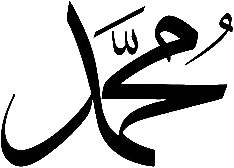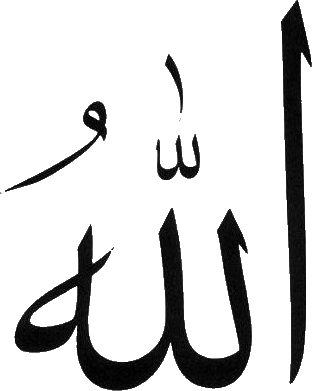| |
The Meaning of Islam
"ISLAM" is derived from the Arabic root salaama peace, purity, submission and obedience. In the religious sense, Islam means
submission to the will of God and obedience to His law.
Everything and every phenomenon in the world, other than man and jinn is
administered totally by God-made laws,they are obedient to God
and submissive to His laws, i.e. they are in the state of Islam.
Man possesses the quality of intelligence and choice, thus he is invited to
submit to the good will of God and obey His law, i.e. become a Muslim.
Submission to the good will of God, together with obedience to His beneficial
law, i.e. becoming a Muslim, is the best safeguard for man's peace and harmony.
Islam dates back to the age of Adam and its message has been conveyed to man
by God's Prophets and Messengers including Abraham, Moses, Jesus and Muhammad.
Islam's message has been restored and enforced in the last stage of the
religious evolution by God's last Prophet and Messenger Muhammad.
The word ALLAH in the Arabic language means God, or more
accurately The One and Only Eternal God, Creator of the Universe, Lord of all
lords, King of all kings, Most Compassionate, Most Merciful. The word Allah to
mean God is also used by Arabic speaking Jews and Christians.
The purpose of life
A Muslim believes that the purpose of life is to worship Allah. Worshipping
Allah does not mean we spend our entire lives in constant seclusion and absolute
meditation. To worship Allah is to live life according to His commands, not to
run away from it. To worship Allah is to know Him, to love Him, to obey His
commands, to enforce His laws in every aspect of life, to serve His cause by
doing right and shunning evil and to be just to Him, to ourselves and to our
fellow human beings.
Status of Human Beings
A Muslim believes that human beings enjoy an especially high ranking status in
the hierarchy of all known creatures. Man and woman occupy this distinguished
position because they alone are gifted with rational faculties and spiritual
aspirations as well as powers of action. Man and woman are not a condemned race
from birth to death, but dignified beings potentially capable of good and noble
achievements.
A Muslim also believes that every person is born Muslim. Every
person is endowed by Allah with the spiritual potential and intellectual
inclination that can make him a good Muslim. Every person's birth takes place
according to the will of Allah in realization of His plans and in submission to
His commands. Every person is born FREE FROM SIN. When the
person reaches the age of maturity and if he is sane, he becomes accountable for
all his deeds and intentions. Man is free from sin until he commits sin. There
is no inherited sin, and no original sin. Adam committed the first sin,
but he prayed to Allah for pardon and Allah granted Adam pardon.
Salvation
A Muslim believes that man must work out his salvation through the guidance of
Allah. No one can act on behalf of another or intercede between him and Allah.
In order to obtain salvation, a person must combine faith and action, belief and
practice. Faith without doing good deeds is as insufficient as doing good deeds
without faith.
Also, a Muslim believes that Allah does not hold any person responsible until
he has shown him the Right Way. If people do not know and have no way of knowing
about Islam, they will not be responsible for failing to be Muslim. Every Muslim
must preach Islam in words and action.
Acceptance of Faith
A Muslim believes that faith is not complete when it is followed blindly or
accepted unquestioningly. Man must build his faith on well-grounded convictions
beyond any reasonable doubt and above uncertainty. Islam ensures freedom to
believe and forbids compulsion in religion (one of the oldest synagogues and one
of the oldest churches in the world are in Muslim countries).
A Muslim believes that the Quran is the word of Allah revealed to prophet
Muhammad through the Angel Gabriel. The Quran was revealed from Allah on various
occasions to answer questions, solve problems, settle disputes and to be man's
best guide to the truth. The Quran was revealed in Arabic and it is still in its original and complete Arabic version today. It is memorized by
millions.
A Muslim also believes in a clear distinction between the Quran and the
Traditions (called Hadiths) of the Prophet Muhammad. Whereas, the Quran is the
word of Allah, the Traditions of Prophet Muhammad (hadiths - i.e. his teachings,
sayings, and actions) are the practical interpretations of the Quran. Both the Quran and the Hadiths of Prophet Muhammad are the primary sources of knowledge in Islam.
|



